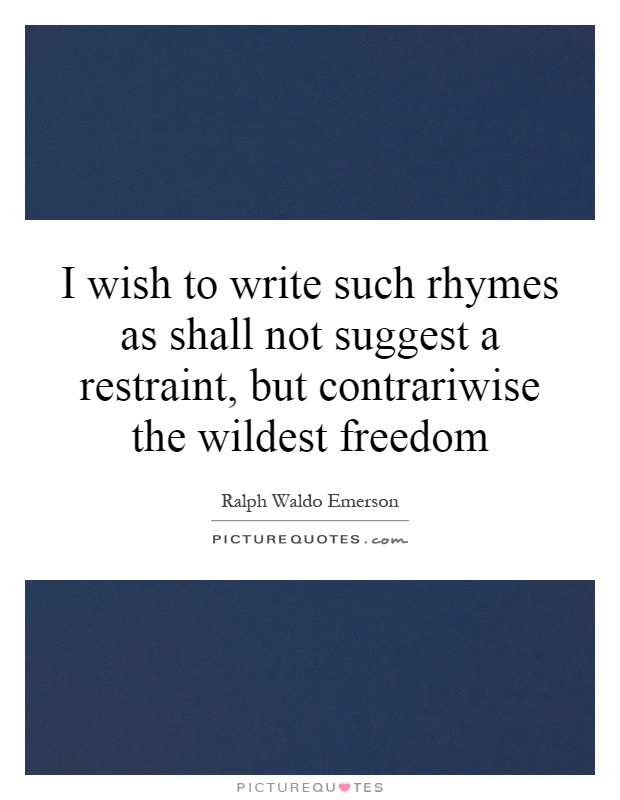I wish to write such rhymes as shall not suggest a restraint, but contrariwise the wildest freedom

I wish to write such rhymes as shall not suggest a restraint, but contrariwise the wildest freedom
Ralph Waldo Emerson, a prominent figure in the transcendentalist movement of the 19th century, was known for his revolutionary ideas on individualism, self-reliance, and the power of nature. His writings often reflected his belief in the importance of personal freedom and expression, and his quote, “I wish to write such rhymes as shall not suggest a restraint, but contrariwise the wildest freedom,” encapsulates this sentiment perfectly.Emerson believed that true creativity and inspiration could only come from a place of complete freedom and authenticity. He rejected the idea of conforming to societal norms or expectations in his writing, instead advocating for a more spontaneous and unrestrained approach to self-expression. In his view, true artistry could only be achieved when one allowed their thoughts and emotions to flow freely, without any limitations or inhibitions.
For Emerson, writing poetry was a way to tap into the deepest recesses of the soul and connect with the universal truths of existence. By embracing the “wildest freedom” in his rhymes, he sought to break free from the constraints of conventional poetic forms and structures, allowing his words to take on a life of their own. In doing so, he believed that he could access a higher level of creativity and insight, transcending the boundaries of ordinary human experience.
Emerson’s philosophy of writing with wild freedom can be seen as a call to arms for all artists and creators to break free from the shackles of conformity and embrace their truest selves. By tapping into the boundless wellspring of creativity within, one can unlock the full potential of their artistic vision and create works that are truly transformative and inspiring.












 Friendship Quotes
Friendship Quotes Love Quotes
Love Quotes Life Quotes
Life Quotes Funny Quotes
Funny Quotes Motivational Quotes
Motivational Quotes Inspirational Quotes
Inspirational Quotes